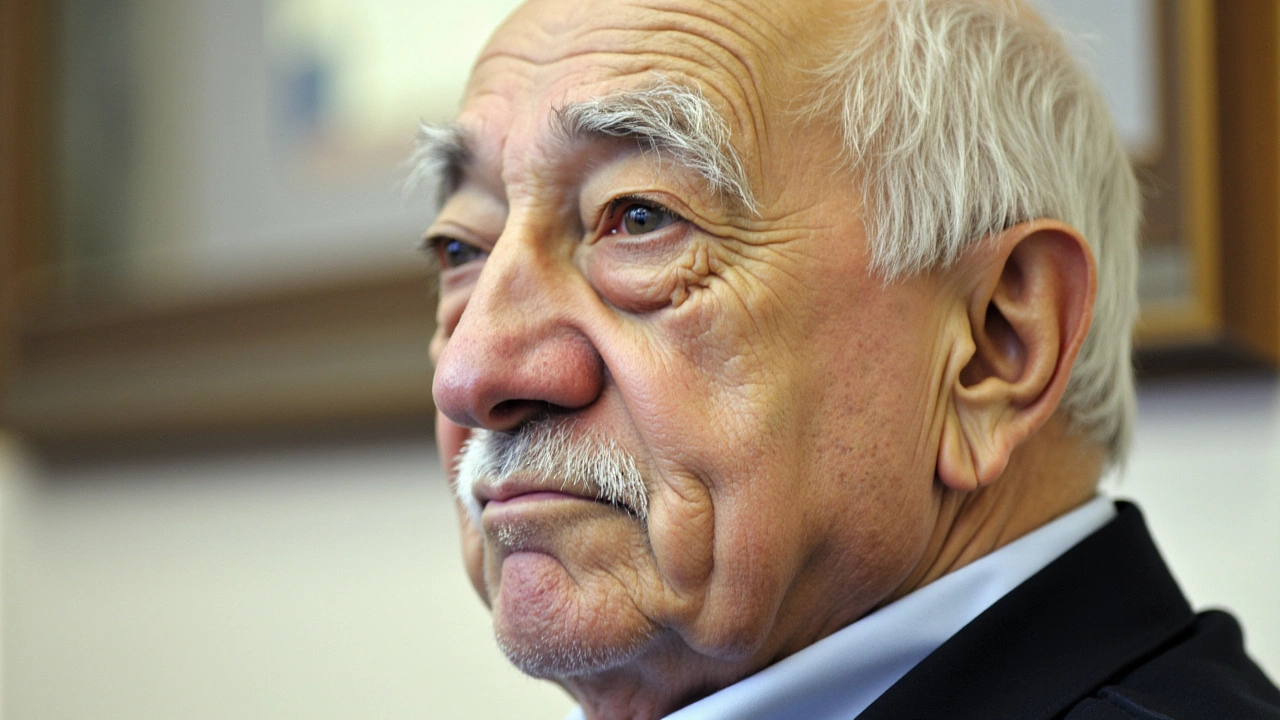Fethullah Gülen: A Controversial Spiritual Leader
Fethullah Gülen, a self-exiled Turkish Islamic cleric and influential leader of a global social movement, has died at his residence in Pennsylvania. Passing away on October 21, 2024, Gülen leaves behind a legacy that is as prolific as it is contentious. Born in Turkey, the spiritual leader lived a life devoted to a blend of Sufism and modernism, seeking to harmonize religious values with education and scientific inquiry. His efforts bore fruit in the form of the Hizmet movement, also known as the Gülen movement, which advocated for interfaith dialogue and democratization. This movement rapidly spread its influence through educational institutions and charities worldwide, showing the world a unique blend of spirituality and modern thought.
The Early Years and Rise to Prominence
Gülen emerged as a significant Islamic scholar in Turkey during the latter half of the 20th century. In a country grappling with its dual identity straddling Islamic traditions and Western secularism, he presented a vision that sought to reconcile these often conflicting ideologies. His early years were spent gaining influence in Turkey, where his followers established a strong network of schools, charitable organizations, and media outlets. In a rapidly changing Turkey, this paved the way for a movement that would transcend borders and retain its impact globally.
The Dramatic Rift with Erdogan
Initially, Gülen's aspirations paralleled those of Turkey's political trajectory, leading to a temporary alignment with then-Prime Minister Recep Tayyip Erdogan. However, political landscapes are ever-shifting, and their alliance soon turned sour. The year 2016 marked a turning point, casting a shadow over Gülen's reputation in his homeland. Erdogan accused Gülen of instigating the failed coup attempt that rocked Turkey on July 15, 2016, an event that left 251 people dead and more than 2,200 injured. The accusations, vehemently denied by Gülen, painted him as a dissenting force against Erdogan's administration, forever altering his status within Turkey and significantly affecting his movement's activities.
The Allegations and Exile
Following the coup attempt, the Turkish government launched an extensive crackdown on those associated with Gülen, alleging they were part of a 'parallel state' within Turkey. Thousands were arrested or dismissed from their positions, accused of being loyal to a man living thousands of miles away. Accusations abounded, branding Gülen as a conspirator and a threat to national security. Despite these serious charges, extradition requests from Turkey to the United States stalled, with American officials citing insufficient evidence. Gülen himself always dismissed these allegations as politically motivated smears.
The Global Impact of the Hizmet Movement
Beyond political conflicts, Gülen's movement had a far-reaching influence, spearheading educational and social initiatives across various continents. It established a comprehensive network of schools globally, exceeding more than 150 charter schools in the United States alone. These institutions were rooted in Gülen's ethos, striving to produce individuals who value education and moral integrity. Furthermore, educational and interfaith programs encouraged understanding among diverse communities, a testament to a world increasingly in search of peace and dialogue over discord.
A Divisive Legacy
Gülen's demise marks a pivotal moment in the narrative of modern Turkish history. Ever since his home country turned against him, his presence loomed large in international circles, whether admired for his promotion of education and interfaith peace or vilified through political lenses. Looking back, his life was one of complexity—both a proponent of peace and education and a controversial figure caught within the throes of political power struggles. As Turkey continues to navigate its contentious relationship with Gülen's legacy, future generations will undoubtedly deliberate over the intricate tapestry of his influence.
Reactions and Future Implications
Following his passing, Turkish authorities, led by Foreign Minister Hakan Fidan, reiterated their stance against Gülen’s organization, calling for the dismantling of his movement's remains. Such declarations signify an unyielding effort by Turkey's current regime to expunge Gülen’s influence. However, the question remains whether his ideas will continue resonating within Turkey and abroad. Educational initiatives and dialogues sponsored by the movement have planted seeds that could flourish independently of the political tumult surrounding them.
The international community now observes as Turkey wrestles with its modern identity in the absence of one of its most polarizing expatriates. Meanwhile, Gülen's followers, scattered across various global communities, face the challenge of preserving the essence of a movement that may struggle without the guiding presence of its founder. His life and work inadvertently highlighted a persistent human struggle: the pursuit of harmony amidst political disharmony. In this, Gülen leaves behind a world still grappling with the ideals he espoused.

Comments